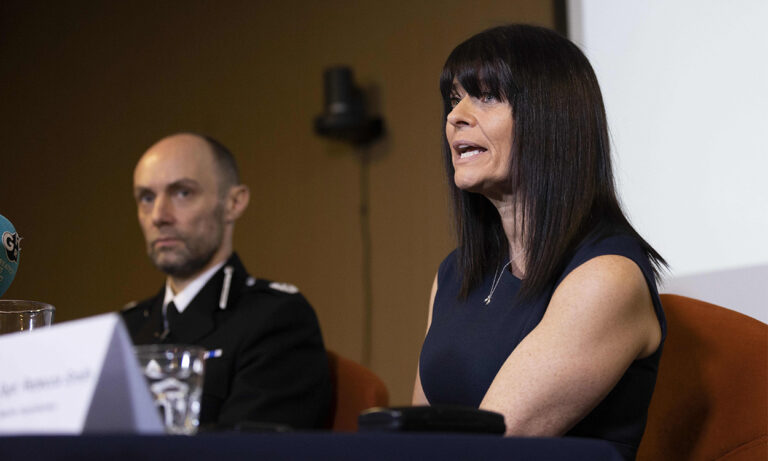Everything that’s wrong with the recent narrative surrounding the disappearance of Nicola Bulley

On the morning of 27 January 2023, 45-year-old Nicola Bulley vanished. The mother of two was last seen in St Michael’s on Wyre, not far from her home in Inskip, Lancashire. Over the past two and a half weeks, the police and the public have laboured over numerous theories and possible explanations as to what might have happened to her.
This case is incredibly complex in many ways, and it’s understandable that certain events may have shaped and impacted the investigation in ways we as citizens won’t ever completely understand. However, a serious issue has begun to emerge regarding the police’s and media’s narratives of Bulley and the life she led prior to going missing.
On Wednesday 15 February, Sky News published an article titled Nicola Bulley: Police say mum-of-two experienced ‘significant’ problems with alcohol related to the menopause. Within the piece the news publication went on to state that family members had informed the police, “Nicola had in the past suffered with some significant issues with alcohol which were brought on by her ongoing struggles with the menopause.”
On the same day, The Guardian peddled articles plastered with the phrase “alcohol issues” whenever it reported on Bulley’s case. The same can be said for The Telegraph—although it was slightly more inventive in its negligence, going for “significant issues with alcohol.”
What is the primary issue with this narrative?
There is a serious problem with both the police and major publications placing menopause and alcoholism at the centre of this case.
When voices of authority make public statements such as this, they demonise the victim in a way that is completely irresponsible and disrespectful. It’s possible to comment on how an individual may have been “high-risk” without delving into her personal struggles or legitimate medical issues.
Menopause is a seriously misunderstood concept. Fuelled by systemic sexism and misogyny, a majority of the general public (women included) either don’t fully understand what menopause is, or if they do, they base all of their knowledge off of preconceived stereotypes such as being overly emotional and having a hot flash in Tesco.
In reality, menopause is an incredibly intricate and complex aspect of the female ageing process. It comes with a variety of symptoms—one of which can be menopausal depression.
The perimenopause period, which normally occurs when a woman is between 45 and 50 years old, can induce serious fluctuations in hormones, which can then subsequently lead to depression. This is of course not always the case, as menopause is not a one size fits all process.
Women already face issues when it comes to the authorities taking their mental health seriously, and with so little education surrounding this post-period state, it’s a serious problem for publications to be inadvertently insinuating that Bulley’s disappearance is connected to her problems with alcohol, thereby potentially even perpetuating the idea that every woman who goes through menopause will have the same issues.
The narrative paints Bulley in a seriously critical light—one that disregards all other possible explanations behind her vanishing. It almost suggests that she was a struggling alcoholic who may have acted irrationally in a drunken stupor.
According to The Independent, a former detective has said that Lancashire Police “completely destroyed” Bulley’s reputation after revealing her personal struggles with alcohol.
The details surrounding Bulley’s disappearance are still a mystery and we have no way of knowing what truly happened that day. Sensationalism and widespread theories are commonplace after an individual vanishes under such circumstances. However, publicly centering the entire narrative regarding the investigation on Bulley’s menopause and personal issues is disrespectful to both her and to all women.





